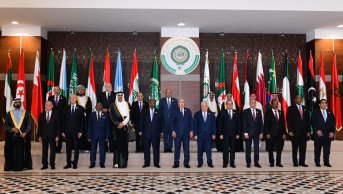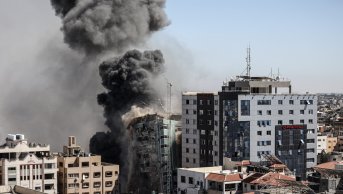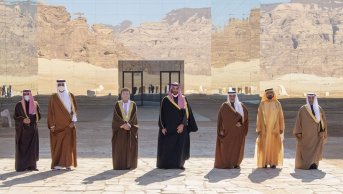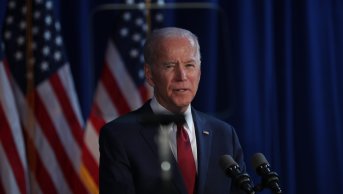Tunisia Toward Elections
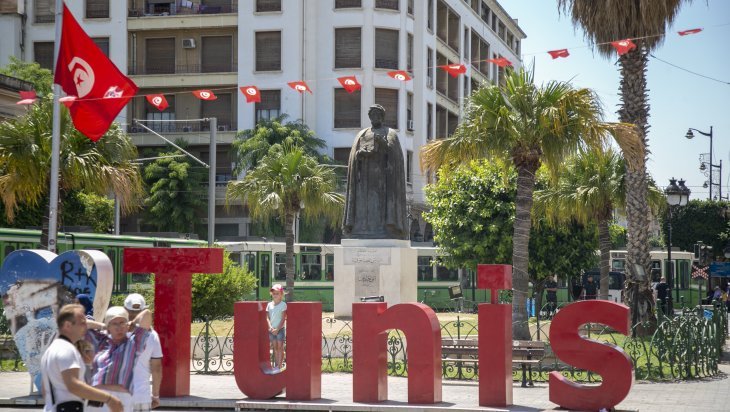
Beji Caid Essibsi, President of Tunisia, the only working democracy and the symbol of the Arab Spring, died last month. He was the oldest head of state after Elizabeth II, Queen of Britain, yet he was elected as president at a very old age (88) and was not able to complete his term that would end in November this year. Essibsi has a special place in the political history of Tunisia for he did not concede to non-democratic demands in his presidency that took place at a critical time. This article seeks to analyze the political outlook in Tunisia toward the post-Essibsi elections.
The uprisings that broke out after a peddler set himself on fire has overthrown the 23-year-old Ben Ali regime and then spread to the whole region toppling dictators. Yet in the following period, with the support of the regional and international status quo powers, the old regimes were invigorated through coups d’etat (Egypt, Yemen, Libya) and some despotic regimes have been kept in power (Syria) using civil wars and terrorism as an excuse. Some Arab governments have implemented reforms (such as Morocco and Jordan) in order to control social reactions. Oil and gas exporting states have survived the waves of change by increasing the benefits they share with their peoples.
The Cycle of Democracy
Tunisia stands as an example in the Arab world for its success at maintaining the cycle of democracy thanks to its domestic political consensus and the high education level of its people. In contrast to Egypt, its transition phase was directed by civilians instead of a military council. Also, in contrast to the Muslim Brotherhood in Egypt who initially cooperated with the army and the Salafists, the Ennahda movement worked with the secular and liberal pro-revolution which made consensus easier. Tunisia has avoided the wrath of the anti-democracy bloc in the region since it is relatively small and has little economic and political weight when compared to Egypt and Libya. In addition, the apolitical tradition of the Tunisian army gave little hope to those who wanted a coup d’etat.
The regime of Ben Ali, which was more authoritarian than the Egyptian regime, allowed no civil society activity other than that of state-controlled worker and women movements. Despite that, Tunisians were able to reach a consensus after the revolution and managed to write a new constitution under a transition government. After that, several elections for presidency, parliament and municipality were held. The nine years after the revolution have mostly seen coalition governments. The Ennahda movement, which had been banned under the Ben Ali regime, has transformed into a political party and survived in the political arena through participating in the governments, remaining in the opposition or supporting the government from outside. In the presidential elections, the Ennahda movement did not hold a candidate or supported the existing ones. In the first elections, Munsif Merzuki, its favored candidate won, while in the second Beji Caid Essibsi won as the joint candidate of the opposition.
Rising Political Apathy
Tunisia, as a partially mismanaged democracy in this period, still experiences problems, such as the lack of basic services and problems with employment, corruption, education and healthcare. This situation weakens the faith in democracy and increases political apathy. The radical Salafist groups, which are boosted by Gulf money and the strict secularism of the previous era, have increased terrorist attacks. Tunisia has the one of the highest rates of DAESH recruits among the Arab countries. Radical Salafists attack shops that sell alcohol and raid the schools that disallow students who wear niqab. The assassination of secular politicians Shukri Belaid and Muhammed Brahmi in 2013 increased tensions in the domestic politics. In short, the Islamist-secular polarization is a main fault line in the Tunisian politics and stand out more than the other Arab countries.
The death of Beji Caid Essibsi has made arrangements necessary to change the date of the presidential elections to be held in November 17. It will be a first for Tunisia that the president is being elected before the parliamentary elections. The other is that the Ennahda movement has provided a candidate for the presidency for the first time in the history of democratic Tunisia. In the previous two elections, the Ennahda movement supported candidates from other parties.
These two new factors concern the fractured opposition. The Ennahda movement is seen as advantageous in both presidential and parliamentary elections. While Father Essibsi was alive, the competition between Prime Minister Yussef Shaheed and the son Essibsi became beneficial for the Nida Tunisia Party. Shaheed, who founded the Long Live Tunisia party remains in office thanks to the support of the Ennahda movement and is also one of the candidates. The son Essibsi is not expected to fill his father’s seat.
Seven Forerunners
On last Wednesday, the Tunisian Elections Board ratified the candidacy of 26 out of 100 presidential hopefuls. There are seven forerunners among them: Abdulfettah Moro, Abdulkerim Zbidi, Yusuf Şahid, Nabil Karoui, independent candidate Munsif Merzuki, Abir Moussi, Muhammed Abbou. The first two among them will run for the second round. No one expects that the elections will be over in the first round because the fractured political landscape produced few favorites among candidates. Political struggle and polarization will intensify in accordance with the candidate who is expected to run for the second round against the Ennahda movement candidate.
The pressure by lesser radical Salafist groups on the conservative wing of the Ennahda movement almost disintegrated the movement by 2013. Yet, the disintegration was averted thanks to the lessons learned from the coup d’etat in Egypt and the charisma of Rachid Gannouchi. The liberal vs. conservative struggle within the Ennahda movement has not completely stopped and resurfaced again during the nomination of the presidential candidate. While the conservative camp insisted on nomination from within the party ranks, the liberal wing advocated for caution and remained firm that the presidential candidate should be from outside.
As a result of the consensus within the party Rachid Gannouchi, who is the natural leader of the Ennahda movement, stepped back and proposed that his aide, Abdulfettah Moro should become the party’s candidate. It is viewed as a great virtue and devotion considering that there are Arab dictators who do not mind killing millions just to stay in power. When no other candidates emerged, the joint candidate received 98 in favor and 5 votes abstained. Moro is a strong candidate known for his serious and moderate personality.
While the presidency is a symbolic post in Tunisia, some within the Ennahda movement thought that they should support a non-party candidate considering the regional and international atmosphere. However, the Ennahda movement preferred a candidate from its ranks for it was not pleased with Merzuki, whom it had supported earlier. Moro, a law graduate candidate of the Ennahda movement, is an experienced veteran who participated in Islamic dawa activities and politics. He is moderate and keeps distance with the Muslim Brotherhood. His Ecole finds its roots in the reformist way of Hayrettin Pasha of Tunis, an Ottoman grand vizier.
Essibsi’s successor candidate is Abdulkerim Zbidi, the minister of defense. Known for his independent personality, Zbidi has been able to unite liberals, democrats and leftists. He has the potential to fill the vacuum in the center. Nevertheless, even his supporters were irked when his aides yelled at media members in his first press conference. It is not possible to guess whether he can address its problems with communication. Prime Minister Yussef Shaheed declared his candidacy at the last minute. The delay might show hesitancy on his part. Also, he is having a hard time deflecting criticisms about his failure to undertake serious work or end the chronic economic problems. Though, he states that he had had a mouthful of status quo in his three years in office and will change it. He asks for support by referring to Habibi Bourgiba, the founder of Tunisia. Some opposition members insist that he should resign from his post even though there is no legal obligation.
Stressing the Corruption
Among the other presidential candidates, Nabil Karoui is the owner of Halil Tunus Foundation and Nessma TV. Nabil Karoui is facing continuing court charges about tax evasion and money laundering activities. He is still an important figure because he can reach masses though his TV channel. Abir Moussa, who is an aide of Ben Ali and is from the Free Constitution Party, is another important candidate. Moussi has explicitly rejected the Arab Spring and could receive support from the supporters of the old regime. Mohamed Abbou from the Democratic Movement Party focuses his campaign on corruption which would receive support from the people.
The political parties in Tunisia number more than two hundred and are focused more on parliamentary elections. The sudden death of Essibsi has foiled their plans and deeply impacted the political landscape. for the reason being that the election threshold is three percent, a high number of political parties are able to enter the parliament resulting in a fractured political system and an unmanageable democracy. The fact that the presidential elections are being held earlier will change the political customs and calculations that are yet to settle. Such disarray may force new alliances in the parliamentary elections depending on the impact of the presidential candidates on the political landscape.
This article was first published on 17th August 2019 on the website of Star Açık Görüş with the title ‘Tunisia toward Elections’.

